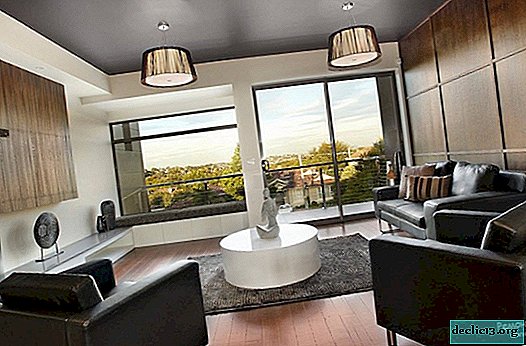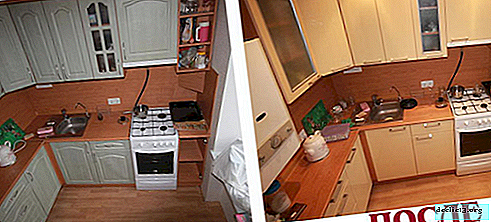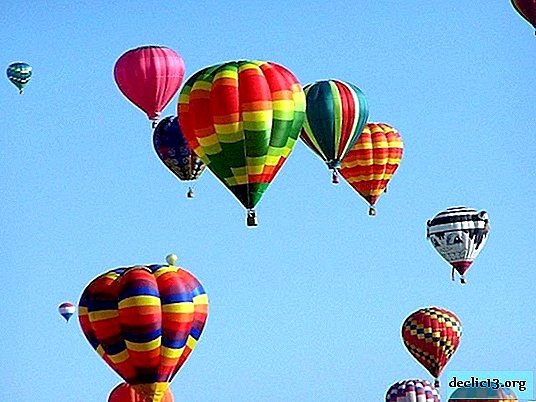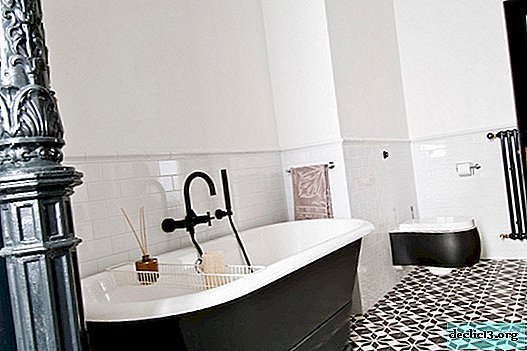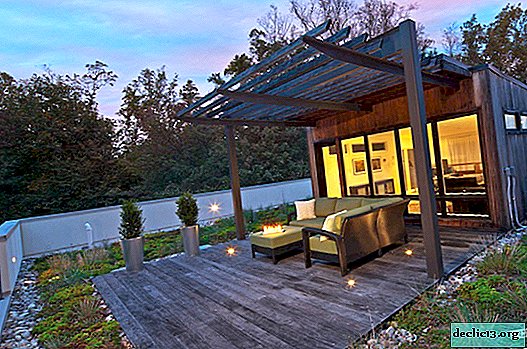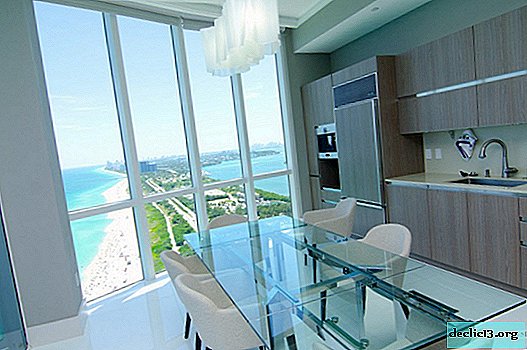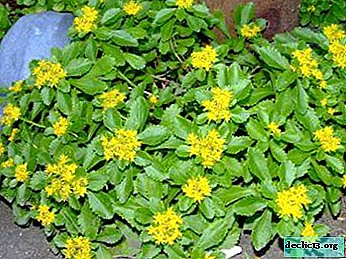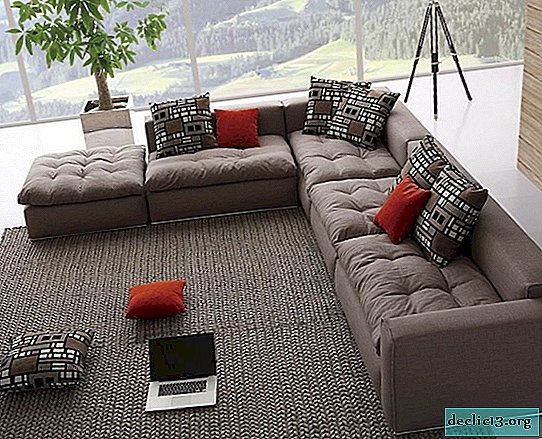Garden lighting as an element of landscape design
Lighting a garden or garden is an important element not only of beauty, but also of security. To make sure of this, just one walk through the backyard or garden with a hand lamp is enough. A well-thought-out and competent lighting system makes it easy to navigate the garden plot in the dark and move around it with a high level of security. With the help of decorative illumination of flower beds, garden paths, steps and trees, you can create an individual atmosphere of a personal plot and extend the time of communication with nature.
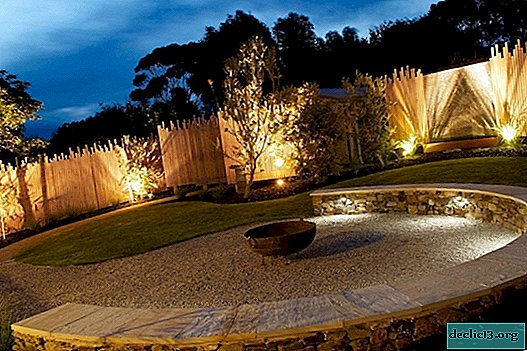

There are two types of street lighting:
- utilitarian (functional);
- decorative.

Let's look at specific examples of landscape design projects that use garden lighting, how to not only protect yourself, family members and guests of a suburban or urban private household, but also to give the homestead an atmosphere of celebration, mystery or romanticism.

Functional lighting
First of all, it is safe movement around the site and near it in the dark. If we consider the illumination of the personal plot or the backyard from the point of view of comfortable safety, then the illumination of the porch of the house, the entrance to the garage or the parking lot for the car and garden paths can be considered a sufficient level.

If we talk about the simplest and not expensive way to illuminate a site that is adjacent to home ownership, then it is enough to evenly place the lamps along the garden paths. Such lighting can be the basis of garden lighting, for small areas this may be enough.


When designing functional lighting, it is important to remember several key aspects:
- lighting equipment should be durable, all-weather, simple and convenient from the point of view of operation and maintenance;
- it is necessary to maintain harmony between the level of illumination of paths and other landscape objects. Walking on the track will feel discomfort if it is flooded with too bright light. The maximum level of brightness is better to focus on lighting accent elements - arbors, patios, trees or shrubs;
- it is important that the facade of the building remains the most illuminated place on the site, it is psychologically easier for residents of the house and their guests to move from a darker place to the area with bright lighting;
- Another factor of psychological comfort is the fact that even at the darkest time of the day, the borders of the yard or plot are visible.


For the organization of functional lighting, both ordinary incandescent lamps and energy-saving, fluorescent, having various mounting methods are suitable. Most commonly used floor lamps. These are lighting devices that are mounted vertically and are equipped with frosted glass diffusers, which significantly improve the quality of the light installed in their lamps. High-tech floor lamps are becoming increasingly popular, but there are also design projects with retro-style equipment.


Spherical lights - the organic form of a sphere made of carbonate or polycarbonate, equipped with low-power lamps, can not only create dim lighting, but also decorate the landscape design of any site.


Solar Powered Lighting - are charged during the day (for this they are equipped with special batteries) in order to ensure dim lighting of significant sections of the backyard or garden in the dark. Such devices are mobile and do not need to be connected to a power network, they can be removed for the winter or transferred during the warm season to different parts of the garden to highlight certain objects, constantly changing the appearance and atmosphere of your site at dusk. Due to the fact that solar-powered devices are equipped with sensors and LEDs that turn on automatically, such lighting can last all night.

In order not to be mistaken when choosing fixtures for a personal plot, you can use one simple rule - if the landscape design of the garden is quite diverse, it is dominated by various flower beds, a patio with garden furniture, alpine slides and many other decorative elements, then it is better to choose laconic shapes or use hidden backlight (more about this later). And in the case of a simple and concise landscape design, striving for minimalism, you can use retro lights, fancy shapes, different shades of lighting.




Recently, built-in lighting systems are used quite widely, not only indoors, but also on personal plots. You can embed lamps in the base of steps, alpine hills, fountains, borders and other landscape elements.
What is important to know when acquiring street lighting:
- Be sure to ask the store for a safety certificate for the device;
- make sure that the certificate contains information about the degree of protection of the purchased goods;
- ask about the warranty period for the outdoor lighting element;
- Pay particular attention to the material of the appliance. The light body will be actively affected by sunlight, moisture and other weather manifestations. Check if the inside of the fixture mount is painted; if it rusts, the fixture will have to be thrown away. In operation, lamps made of stainless steel (painted), cast iron and aluminum alloys proved to be quite good.


Decorative lighting
With the onset of darkness, any, even the most beautiful and refined home garden, loses its individuality. Flowerbeds and flower beds, garden sculptures, ponds and fountains become indistinguishable in the twilight. Properly organized lighting of the backyard or garden can transform the exquisite beauty of nature and create a unique night image of the site, which will be completely different from the appearance of the yard during daylight hours. It is up to you to decide whether the appearance of the garden is suitable for you - mysterious or romantic, filled with drama or festive fun.


An interesting decorative effect can be created by highlighting plants (trees and shrubs). To do this, mini-spotlights are installed on the ground (in small recesses).


Lighting without luminaires
A growing number of landscape design projects are striving to use LED lighting, which allows you to create a kind of hidden illumination, without the use of lamps, spotlights and lamps. In this case, for the support of LED low-voltage lamps, any type of support is used - a stone, a branch or the construction of buildings and structures. LEDs are hidden in the crowns of trees and shrubs, placed in flower beds, creating a lot of options for transforming the garden in the dark.




Highlight reservoirs
The spectacle of thoughtfully illuminated water is mesmerizing. Multi-colored illumination is able to transform your body of water, and a single color will give significance and nobility. Illumination of pools, small ponds, fountains and other artificial reservoirs is capable of fundamentally changing the appearance of your personal plot.





A few designer ways to decorate the garden
There are many ways to personalize the landscape design of your site. Why not make original fixtures with your own hands or purchase lighting fixtures of an unusual design? Experiment, do not limit your imagination, but do not forget about safety and functionality.


Some important information about decorative garden lighting:
- With the help of lighting, you can zonate a spacious garden plot, and create a visual extension of the borders in a small yard - warm light brings the lighting object closer to us, while cold light visually moves it away;
- for places of rest (open terraces, patios, playgrounds and gazebos) soft diffused light of warm tones is more suitable. Dimmed lighting can create a cozy atmosphere that will be conducive to communication and a pleasant pastime with family or friends;
- if the garden uses lamps of various colors, then it is desirable. So that they complement each other. Usually enough use of 2-3 colors. A very bright white color is able to "kill" your site, be careful with its use. Red and brown colors should also be used carefully and dosed;
- You can create festive lighting in the garden using garlands and LED stripes placed on trees, in the gazebo or around the perimeter of the patio.







And finally
It is necessary to create a project for lighting a personal plot at the start of the stage of creating a landscape concept. Lighting is planned in parallel with projects of gazebos, terraces, rock gardens, garden paths, indoor and outdoor areas, patios and other recreational facilities. If you do not include the lighting system in the initial landscape design plan of the courtyard, then you can subsequently incur additional costs and spend more time and effort on organizing it. You will need to install electrical equipment, and this can lead to some reorganization of landscape design.




